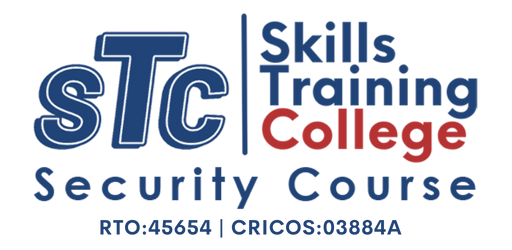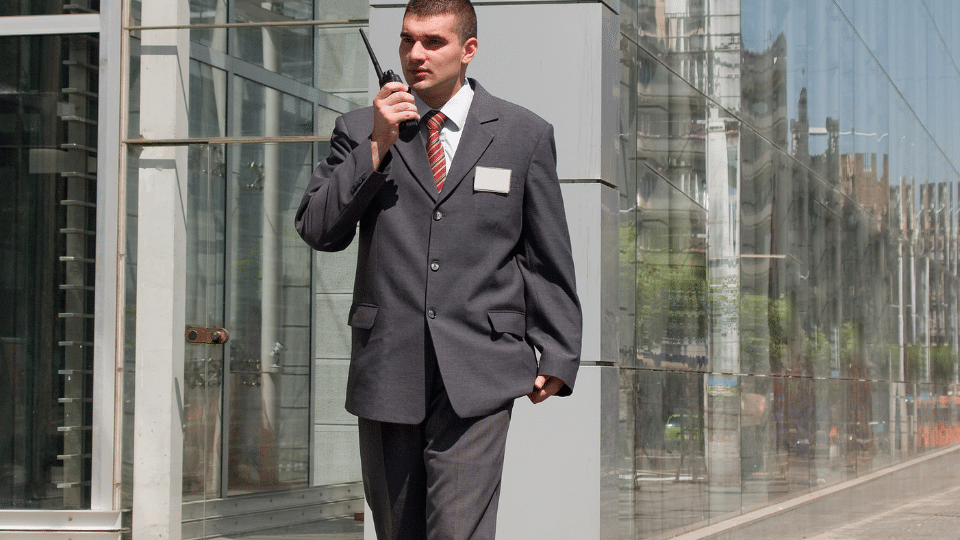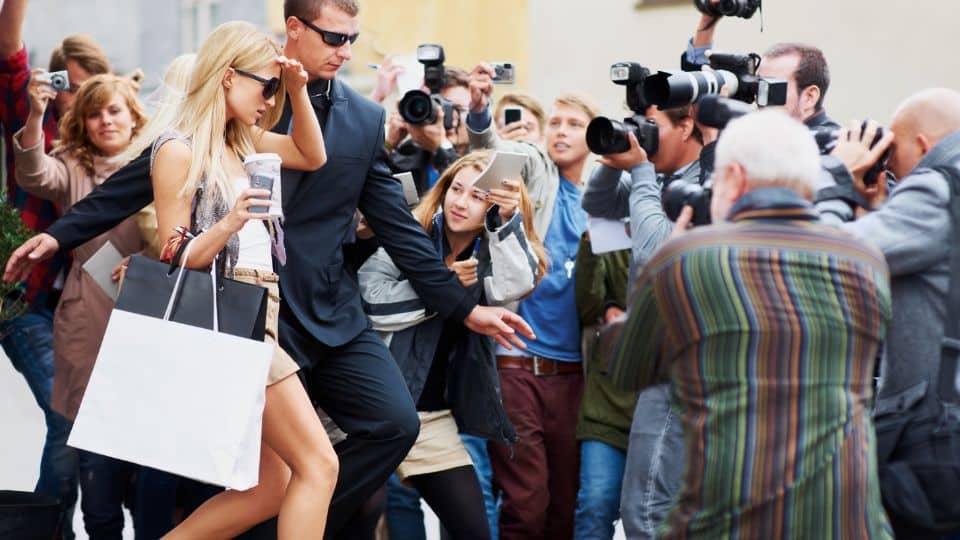If you want to keep people safe, work in a wide variety of settings (including concerts and sporting events that most people have to pay to enter) and enjoy the flexibility of shifts available around the clock, consider becoming a security guard. You can prepare to get your licence and get to work in no time by enrolling in the Certificate II in Security Operations. Keep reading to find out what’s in the course and where it can take you.
What Are The Entry Requirements For The Course
This is an entry-level course for people new to the security industry, so there are no prerequisites in terms of study. However, there are a few general requirements for people wishing to enrol.
Age
Providers offering this course will generally require that only people over the age of can enrol. This makes sense, as you must be 18 or older to work as a security guard.
Literacy and numeracy skills
You must have a basic level of literacy and numeracy and numeracy to do Cert II in Security Operations, and providers may or may not test this with a Language Literacy and Numeracy (LLN) Assessment before you enrol. Communicating effectively is an important skill in the security industry, and as you’ll see, this need comes up in several of the units that make up the course.
What Is The Content Of The Course
You will have to complete 14 units of competency to be awarded the Cert II in Security Operations. As this is an entry-level course with a lot of ground to cover, these are all core units, meaning they’re already selected for you as topics you have to do. You’ll get a bit more free choice if you go on to study Certificate III.
Apply Effective Communication Skills To Maintain Security
Communication skills may not be the first thing you think of in relation to security guards, but they are crucial, and they’re taught in this unit. You’ll probably need to defuse tense situations on the job, often with people influenced by alcohol or drugs and already in a hostile frame of mind. You’ll need to do this in a way that respects any cultural differences at play and helps resolve the conflict instead of provoking people further.
Communicating Using Radio And Telephone Systems
Aside from communicating in person, you’ll have to report risks to others using radio and telephone systems. This could include communicating with colleagues or supervisors in a control room or emergency services. Whoever you’re speaking with, you’ll need to report what’s happening in a clear and concise way that doesn’t further escalate high emotions.
Communicating In Writing
Written communication comes into play for security guards, too. You’ll need to read signs and standard operating procedures, and any time something unusual happens, you’ll probably be required to record the details on a paper form or using a computer.
Apply Legal And Procedural Requirements To Work Effectively Within A Security Team
As a security officer, you’re entrusted with certain powers that other citizens don’t have, but you’re also subject to the law like everyone else. This unit deals with your legal rights and responsibilities and the importance of working as a team and following procedures.
You’ll need to learn about the professional standards that apply to the job so that you can comply with them. Security guards occasionally need to appear in court and give evidence. This unit covers those situations, together with how to preserve the scenes of incidents or crimes.
Apply WHS, Emergency Response And Evacuation Procedures To Maintain Security
Security guards are relied on by others to take charge in a crisis. At large workplaces like universities, the first person on site to be called on in an emergency is likely to be a security guard. In this unit, you’ll learn about work health and safety, focusing on the responsibilities of security guards to take an authoritative role in emergencies, including evacuations.
Apply Risk Assessment To Select And Carry Out Responses To Security Risk Situations
Risk is, unfortunately, a part of security work. This unit aims to prepare to accurately assess any risks you may be faced with as a security officer and respond in a way that’s in proportion and doesn’t overstep your authority.
The important knowledge you’ll cover includes the use of force, recognising types of behaviour that can indicate criminal activity and the Australian government’s Strategy for Protecting Crowded Places from Terrorism. This document directly references the important role of private security officers in preventing terrorism, which underscores the serious responsibilities you could face in this job.
Provide Quality Services To A Range Of Security Clients
Security guards come in contact with a wide range of people. In this unit, you’ll learn to account for that diversity, adjusting your communication to interact with people from different cultural backgrounds and with different levels of physical and mental ability.
Patrol Premises To Monitor Property And Maintain Security
Conducting patrols is a common part of work for security guards. Not only is this a way of surveying the area and spotting suspicious people or intruders, but seeing a security officer in the area makes a great deterrent to criminal or disruptive activity.
This unit teaches what you need to know to properly conduct patrols, including:
- Performing a patrol sequence following the instructions you’ve been given
- Arming and disarming burglar alarms and other security equipment
- Inspecting the whole property and its access points to ensure the area is secure
- The procedural differences between static and mobile patrols
- How to respond to an alarm
- Risk situations you may encounter while on patrol
Screen People, Personal Effects And Items To Maintain Security
Depending on their work environment, security guards may be called upon to screen people or their property to make sure weapons or other dangerous or prohibited items don’t enter the premises. For example, it’s common for this to be done at the entrance to courts–if you’ve ever visited one, you’ve probably walked through a metal detector.
You will learn how to use your screening equipment and check that it’s working properly, perform a personal search in a courteous way that’s in keeping with the legal limits of your role, and know what to do with any dangerous or prohibited items you do find and how to report them.
Monitor And Control Access And Exit Of Persons And Vehicles From Premises
Security guards sometimes must act as gatekeepers deciding whether to allow individuals to enter the premises they protect and monitor their exit if they are granted access. If this role is given to you, you may need to check the person’s identification and allow or refuse entry (of course, refusing can result in a tense situation).
In addition to granting or denying access to people, you will have to deal with vehicles–including deciding whether to grant them access, carrying out searches, and directing them to the right area to park or unload. Whether you’re controlling the access of people or vehicles, you’ll probably also have to manage some kind of access control system. All of the knowledge above is covered in this unit.
Monitor And Control Individual And Crowd Behaviour To Maintain Security
Many of the jobs Cert II in Security Operations qualifies you for come under crowd control–this is when a security officer is charged with monitoring recreational events where there are a large number of people and making sure they remain orderly. This unit teaches skills for crowd control.
Monitoring Places
Situational awareness is a big part of crowd control. You’ll learn to assess the layout of a site (which can involve getting to grips with maps) to learn where the entrances and exits, first aid stations and any potential hazards are.
Monitoring People
You’ll need to monitor individuals for behaviours that indicate harassment, assault or other potential criminal activity. As well as keeping an eye on individuals, you’ll need to learn the risks involved with crowds, including the factors that can lead to crushing and the risk of mass terror attacks using vehicles and other methods.
Apply Security Procedures To Manage Intoxicated Persons
If you want to be a bouncer stationed at the door of a nightclub or other licensed venue or a security guard inside, you’ll need to learn the content in this unit. The material covered includes:
- Recognising when someone is intoxicated
- Apprehending and restraining people
- Recognising dangerous items and illegal substances
- How to prevent someone from becoming intoxicated once you recognise the early warning signs
- Responsible service of alcohol
- Knowing what constitutes acceptable proof of age
Apply Security Procedures To Remove Persons From Premises
Removing unruly or unauthorised people from the premises is an unpleasant but occasionally necessary part of security work. In this unit, you’ll learn to carry out this task in a way that preserves your safety and that of others, including the person you’re ejecting.
You’ll learn about safe forms of restraint, reasonable force, defensive techniques, behaviours that can escalate a conflict, negotiation techniques to de-escalate, and what situations necessitate removing a person from the premises.
Escort And Protect Persons And Valuables
In this unit, you’ll learn to protect individuals or property as they move from one place to another. You’ll learn to plan and follow a route, use basic escort techniques, make contingency plans, and be aware of the threats you may face while escorting someone to safety or escorting a person carrying valuables.
Provide First Aid
Yes, one of the mandatory units of competency for Certificate II in Security Operations is first aid training, and there’s a good reason for that: holding a current first aid cert is mandatory for professional licensing. This unit, included in the Cert II, is all you need to get qualified in first aid.
Provide first aid covers first aid skills and knowledge, including:
- Performing cardiopulmonary resuscitation (CPR)
- Using automated external defibrillators (AEDs)
- Managing injuries and conditions that include:
- Anaphylaxis
- Diabetes
- Asthma
- Eye injuries
- Fractures
- Injuries to the head, neck and spine
- Seizures
- Choking
What Kind Of Jobs Can You Get with Certificate II In Security Operations
Straight out of your Cert II, without any further study (and assuming you qualify for licensing in your state or territory), you should be able to get work as an unarmed security guard or a crowd controller.
How Do You Get A Security Licence
To work as a security guard, you have to be licensed. The conditions you need to fulfil vary depending on the state or territory, but the following generally apply:
- You must be aged 18 or over
- You must have a first aid certificate
- You have to undergo a background check and be cleared of any disqualifying offences
- Your fingerprints must be taken and kept on file
Higher Education Pathways
Once you have your Certificate II in Security Operations, you can think about taking other courses to help you get more specialised licensing and work.
Certificate III In Security Operations
The obvious next step after Cert II, you can either take Certificate III as a full course or enrol in individual units to prepare for work with dogs, guarding cash in transit, or with firearms. You can also study close protection (being a bodyguard), either by taking additional units from Certificate III or doing a Certificate III in Close Protection Operations. Being a bodyguard can be a great choice for people who don’t fit the traditional burly physical type associated with security guards, because many clients want their bodyguards to be inconspicuous.
Certificates II And III In Technical Security
As a security guard, you might spend a considerable amount of time enabling and disabling alarm systems. If you want a change of pace, the Certificate II and Certificate III in Technical Security can prepare you for work as a security technician installing and maintaining them, as well as electronic locks and video surveillance systems.
Certificate IV In Security Management
This is one to consider after you’ve been in the industry for a while, but it’s good to know the option is there. With this qualification, you can learn about the management side of the industry, including supervising other staff and overseeing work from a control room.
Outlook
The security industry offers an incredible range of opportunities. Depending on the extent you choose to specialise and the further training you undertake, you could find yourself in a nightclub, a shopping centre, guarding an armoured car or screening people in an airport. For these and many other careers, Cert II in Security Operations is your starting point.



